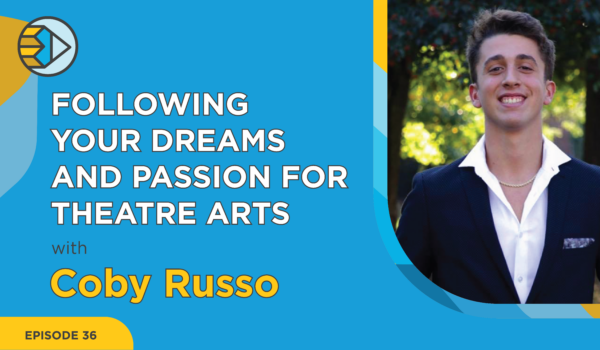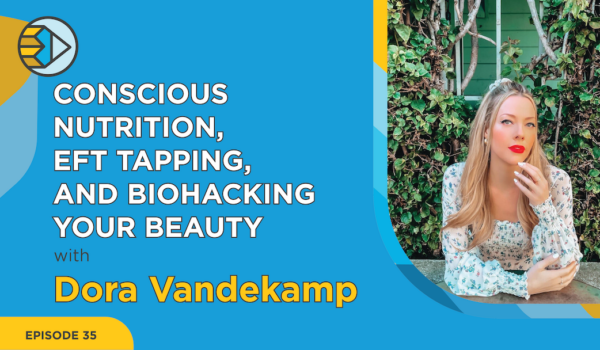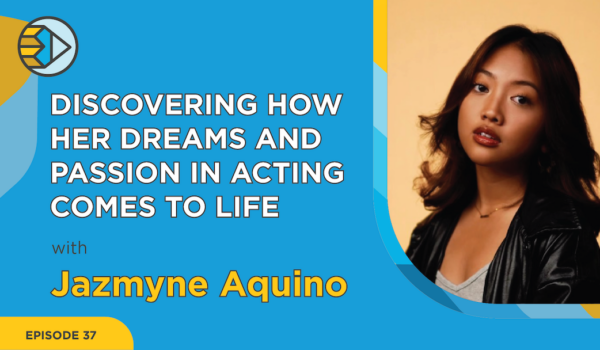
Mental Hygiene By Shalmali Jadhav
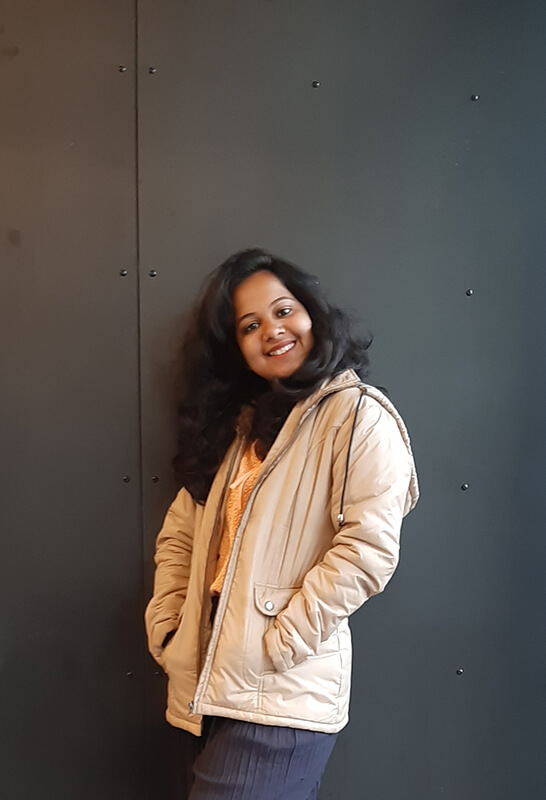 Mental hygiene and computer science engineering aren’t necessarily two terms you would hear in the same sentence. But for Shalmali Jadhav, they would become integral parts of her life and advocacy. In episode 22 of The Homework Help Show Student Influencers Podcast, engineering student and CEO of Empathy for You, Shalmali Jadhav, discusses mental health awareness.
Mental hygiene and computer science engineering aren’t necessarily two terms you would hear in the same sentence. But for Shalmali Jadhav, they would become integral parts of her life and advocacy. In episode 22 of The Homework Help Show Student Influencers Podcast, engineering student and CEO of Empathy for You, Shalmali Jadhav, discusses mental health awareness.
Engineering Student and Young CEO
Shalmali Jadhav shares on the Student Influencers Podcast how she started to be acquainted with mental health. Shalmali hails from the state of Maharashtra, India where talks of depression and mental health are not common. The humble beginnings of her now company, Empathy For You, started when she formed a peer-support group when she learned that one of her friends was diagnosed with depression. She realized early on the lack of awareness surrounding mental health issues in her community. Given her background in computer science, she wasn’t sure initially how to tackle this problem. She decided to lean on her community and started cultivating a space where people felt safe to share their experiences and express their feelings.She has since provided members of her community with tips on how to have good mental hygiene.
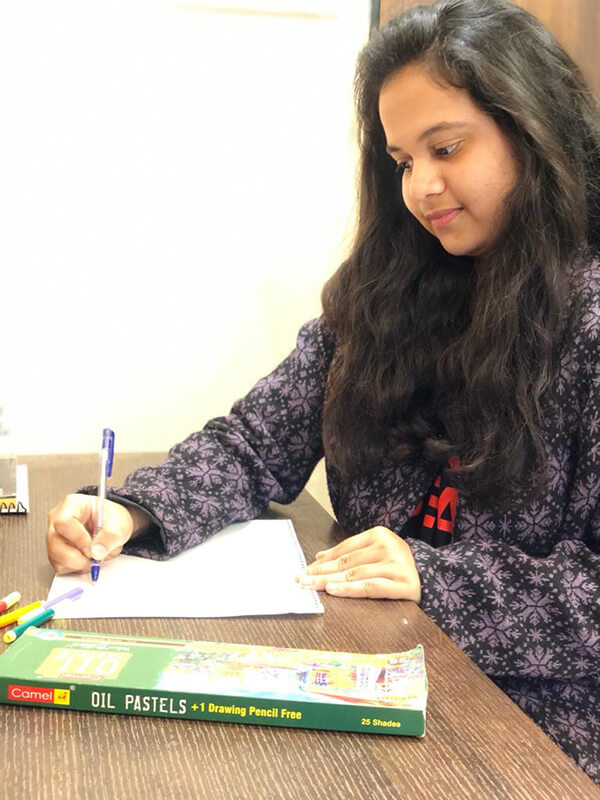
From Computer Science To Advocating Mental Health
Not only does Shalmali focus on her major of computer science and engineering, but she took a step further and decided to take courses on mental health. She also sought advice and mentorship from professionals to further her knowledge. As she navigated through the mental health space, the motto and advocacy of her company grew. The main goals of her company, Empathy For You, was to bring awareness and de-stigmatize mental health.
Empathy For You now consists of 25 members and a core team of 5 who work with Shalmali in providing a safe space or support group for people dealing with mental health issues.
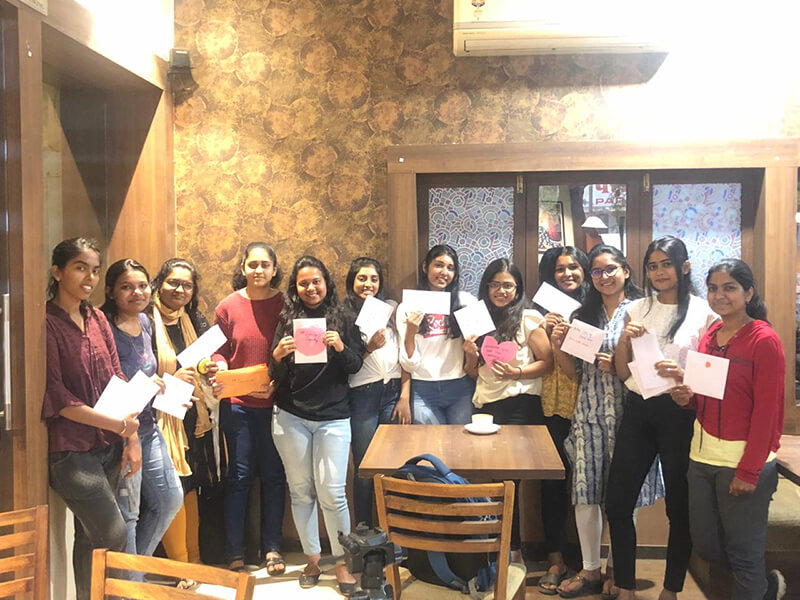
Expanding Empathy For You
Shalmali was able to recognize how impactful social media is on the youth. She used that as leverage and used social media as her platform to reach her goals of highlighting the importance of building mental hygiene and removing the stigmas surrounding mental health. More than anything, Empathy For You is a “movement” and Shalmali has been successful in proving this.
In school, students are taught the importance of personal hygiene and grooming but then when it comes to mental hygiene, there is still a lack of awareness. This is where Shalmali aims to fill the gap. She believes that education on mental health is equally important as lessons on physical health.
“Leading with empathy” is also one of the pillars of her movement. Checking in with your community, making sure your friends are okay, and helping in any way you can to bring awareness on the importance of mental health is a huge goal for Shalmali’s company.
Check out Empathy For You’s social media presence and learn more information on the amazing work they do.
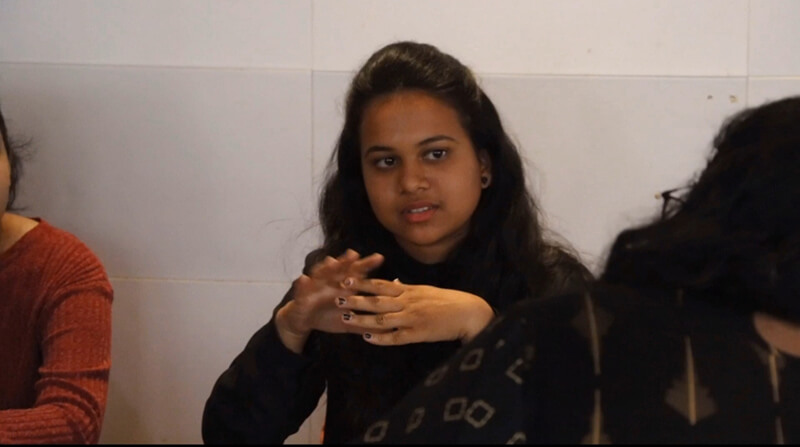
Stigmas Surrounding Mental Health
Only in recent years has there been discussions on how important mental health is in school and in the workplace. This has not always been the case in our society and unfortunately it hasn’t been as widely picked up as it should be.
In India for example, Shalmali explains that not a lot of people are aware of the impact mental health has on people. It is often dismissed by those who do not understand it and label those who suffer from it as “crazy” or have “gone mad.” The lack of education surrounding mental health is overlooked and deemed not in the same space as checking in with your physician or going to the dentist. Saying that you have an appointment with your therapist shouldn’t be met with judgment and make one feel ashamed according to Shalmali.
Stigmas associated with mental health are relatively better spoken about around the younger generation while the older generation are less receptive. Shalmali’s advice to combat this is to start speaking out at home. Start speaking out about the importance of mental hygiene around friends and family. She says this is how the youth can contribute to destigmatizing mental health.
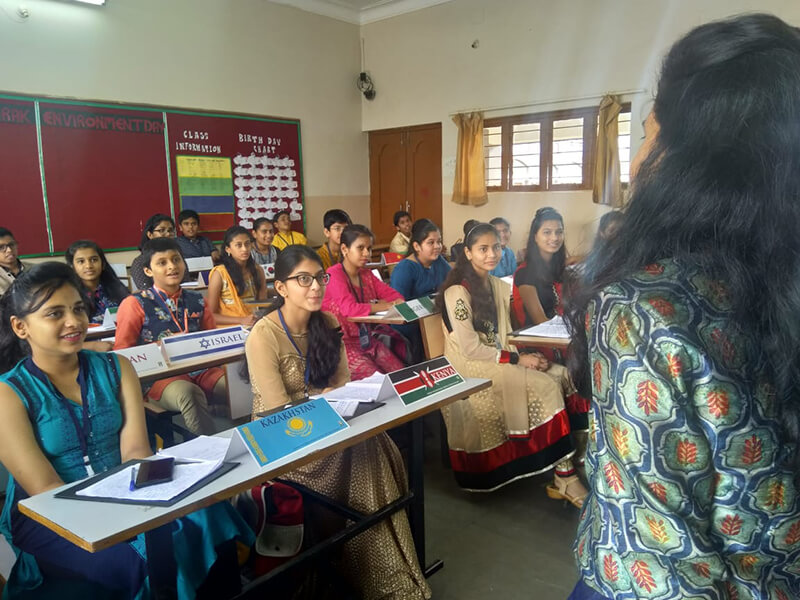
Diplomacy and Being A Part of the United Nations International Youth Council
Being that her main platform is social media, Shalmali often finds herself researching various ways to stay connected. She applies to conferences abroad and in India in hopes to further her network. In this practice, she came across the United Nations International Youth Council. She was one of the select few who was invited into the process of becoming a member. There is a rigorous application and interview process that she had to go through, but with her determination and skill, she successfully passed. At the time, she was the youngest member to be part of the council and she even went on to lead the Indian sub-council.
With this larger platform, she is able to share her advocacies on mental health. A large reason why there is stigmas surrounding mental health in her country is because of its developing nature. The ability to even care or have resources that address mental health is seen as a privilege. People tend to be concerned with more pressing issues that as a result, mental hygiene is put on the back burner.
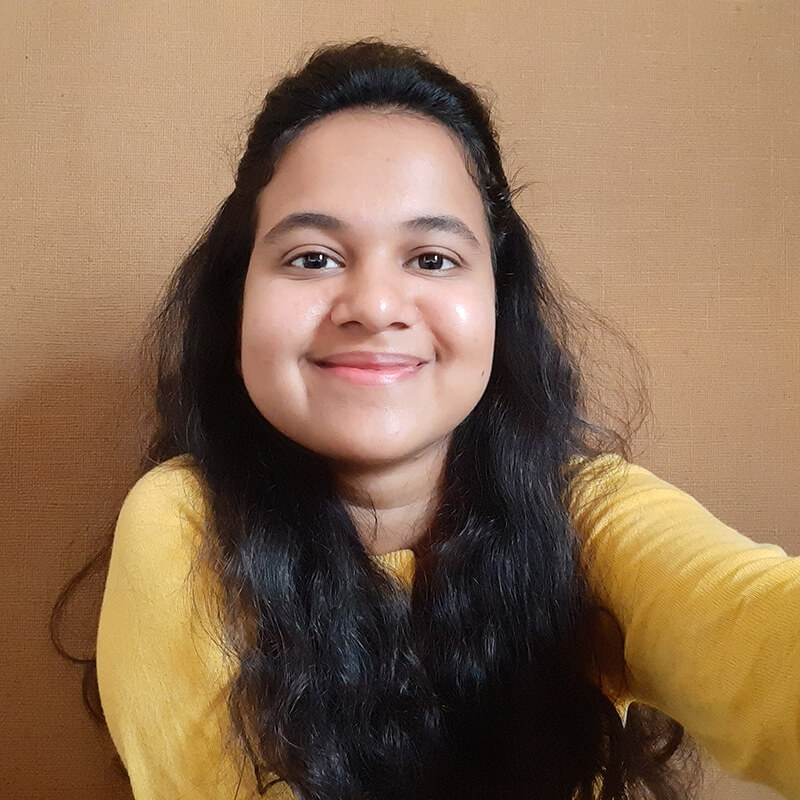
Practicing Emotional Resilience
Shalmali truly goes above and beyond to make sure her advocacies are heard. She has even moderated a TED Talk where she spoke about emotional resilience.The ability to strengthen one’s emotional resilience is so important given that there are many stressors in our environment that hinder us from performing at our highest potential. Mostly exacerbated by the pandemic, so much uncertainty can derail us from our goals. This is where we should learn how to practice emotional resilience. Acceptance and preparation for the worst are some of the things we should always account for to lessen the stress or strain on us whenever we are faced with uncontrollable challenges.
The great thing about learning how to be emotionally resilient is that you are able to see two sides to every situation. Whether on a positive or negative side, you can plan ahead and prepare yourself for any outcome.

Shalmali’s APG Mantra To Achieving Emotional Resilience
A for Acceptance
Accepting the situation for what it is helps us navigate through it better. This is the first step to Shalmali’s mantra. Acceptance is often easier said than done. Sometimes the first step is always the hardest. And true enough especially for challenging situations, it’s easier to stay in denial. Our minds protect us from being hurt or stressed that we tend to overlook situations that need our utmost attention. After all, we cannot overcome what we deny. Accept a situation for what it is, no matter how stressful it may seem.
P for Preparedness
The next step to achieving emotional resilience is preparation. Whether the outcome is positive or negative, you can never be too prepared for either. On the bright side, if your actions produce a positive outcome, you can easily stay on track with your initial plan or intentions.On the other hand, consider the possibility of failure but don’t let it hold you back. Making mistakes brings you closer to the right path and is sometimes necessary in order to grow. Whether you fail or fly, prepare to spread your wings or deploy an emergency parachute.
G for Gratitude
Just as leading with empathy is important to Shalmali’s advocacy, practicing gratitude is the best way to bring her mantra on emotional resilience full circle. No matter what, be thankful for the opportunity to learn and grow in spite of the challenges you might face in order to achieve your goals. If all paths were linear, life would be so boring. The ups and downs are inevitable and this is how we learn. This is how we become more malleable. And ultimately, this is how we learn resiliency. Be thankful for the good, the bad, and everything in between.
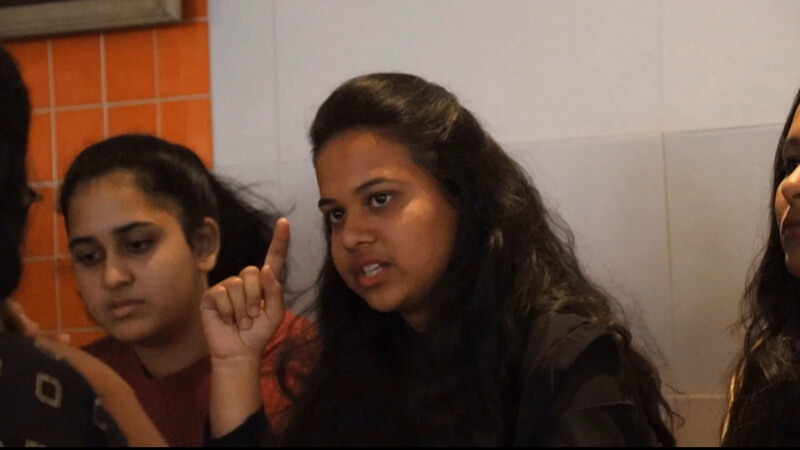
A Master Multitasker
Let’s not forget that while Shalmali pioneers mental hygiene she is still also a student. She balances running Empathy For You which she started at 19, and at 21 as a senior engineering student, she is a master at multitasking.
Employing her personal APG mantra, she has even made the best out of being in lockdown during the pandemic and used her downtime to further grow her company. While many people were stuck unmotivated and uninspired, Shalmali was working double time. In the 4 months she was on lockdown, she was able to hold 65 sessions that consisted of workshops, Instagram Live sessions, and webinars for her company. Not only were these held in India, but with her cooperation with other organizations she was able to bring forward her company’s advocacy to different countries.
On top of being a senior student, she has made time to be interviewed on topics of mental health and COVID-19. She doesn’t necessarily have a strict timetable, but she organizes her day depending on her priorities.
Shalmali is not only a model student, CEO of Empathy For You, but she has also created a platform to help other students cultivate their leadership skills. Check out You Lead India to join her master class on leadership, entrepreneurship, mentorship, and more.
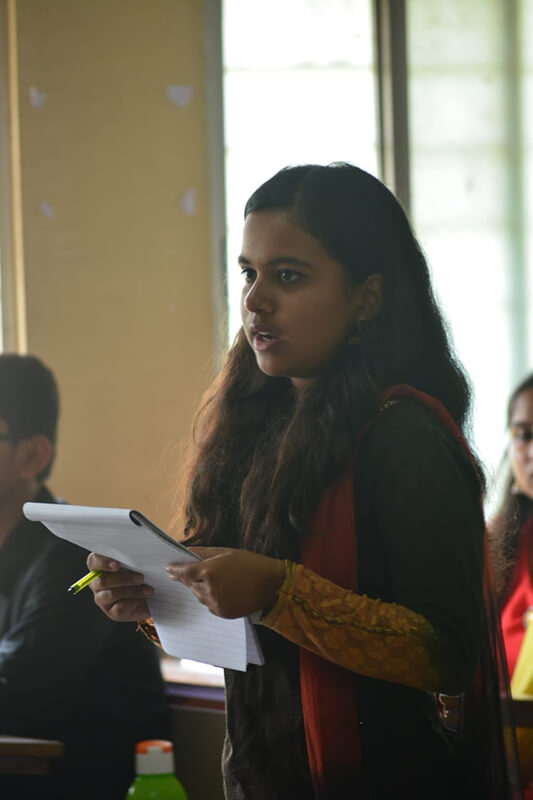
Shalmali’s Tips On Mental Hygiene Upkeep
1. Exercise
According to Shalmali, your physical and mental health are connected and it’s important to stay healthy for both. This correlation means that when you are physically healthy, you are that much closer to keeping a healthy mind. She advises to exercise and have some sort of physical outlet and to practice them in variations. When you’re mentally tired, it could be especially daunting to even find the motivation to work out. This is why it’s important to try different workouts to see what works best for you. For example, Shalmali practices cardio exercises and yoga as her variations.
Check out our past blog on Exercising Your Way To Good Mental Health and learn more ways to keep a healthy mind and body.
>2. Meditation
There are so many benefits to meditation and it might even help in improving your mental state. It emphasizes focus, concentration, and even teaches you proper breathing techniques. Shalmali shares an important tip on “box breathing”. It’s a breathing technique where you exhale for four seconds, emptying out your lungs completely, and then inhaling slowly for another four seconds and keeping the air in your lungs as it expands and then exhaling at the same pace and repeating this process.
3. Rest
Having the right amount of hours sleeping is essential in staying healthy whether it’s physically or mentally. Rest allows our body to rebuild. During the REM stage of sleep is when the brain processes emotional information. The inability of having enough rest or sleep is linked to bouts of depression, anxiety, and other mental disorders.
4. Proper Nutrition
Of course, proper nutrition is vital in keeping our mind and body healthy. Many doctors and health experts link proper diet and nutrition with improving one’s overall mental and physical health. It even helps with symptoms of depression and anxiety.
5. Healthy Hobbies
Hobbies don’t need to be extravagant according to Shalmali. Employing healthy habits and hobbies into your daily life could be as simple as watering your plants. When you’re able to complete simple tasks it adds to your self-esteem and ultimately adds to your overall happiness and wellness. Don’t underestimate the value of achieving small tasks and goals.
6. Self Care
Finding time for yourself is very important. This is especially true for Shalmali who has to balance school and work. She likes to spend time for herself by reading or journaling. She says acts of self care could vary for different people so find what activities spark joy for you. It could be as simple as enjoying the view somewhere in your home, spending time with a loved one, or being with your friends. Acts of self care could also be as simple as taking a bubble bath or getting your nails done. Shalmali says, “make sure you’re taking care of yourself everyday.”
7. Learning
Learning never stops even after school. She says it’s important to practice a new skill every day because it’s a great exercise for the brain. There’s a saying that you learn new things every day and it’s important to keep that in mind. It doesn’t necessarily have to be something difficult but make sure you are constantly learning because this ensures that you’re constantly growing and doing things that benefit you.
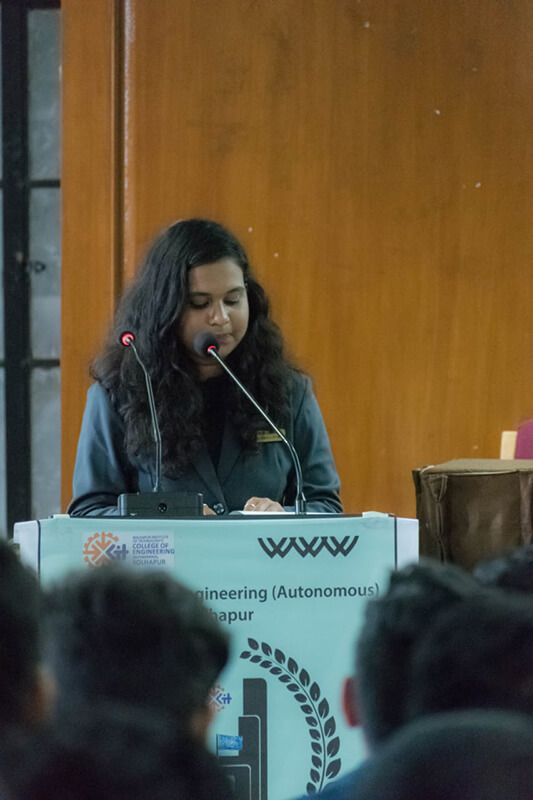
Shalmali’s Inspiring Story
Shalmali is truly the embodiment of empathy, kindness, and determination. The way she is able to balance her school and work life on top of dedicating countless hours into helping others is so incredible. We have learned so much from her ways of taking care of herself and how that translates in the way she is able to take care of others. She is constantly stepping up and bringing those around her up with her. While other people her age love social media platforms like Facebook or Instagram, her favorite social platform is LinkedIn. She loves to align herself with her passions of writing and content creation which is why she is able to be as successful as she is now. She is a true example of someone who practices great mental hygiene and is definitely a beacon of inspiration to everyone who knows her.
Listen to Shalmali’s Full Interview On The Homework Help Show Student Influencers Podcast
Find out more about Shalmali’s company “Empathy For You” and hear her words of inspiration yourself. Episode 22 of The Homework Help Show is available on several platforms so you can’t miss it! We’re on Anchor.FM, Spotify, Apple Podcasts, Breaker, Overcast, Google Podcasts, Castbox, and more. Of course, you can also watch the video version of the episode on our YouTube Channel.
FULL TRANSCRIPT FROM OUR PODCAST INTERVIEW WITH SHALMALI JADHAV BELOW
Shalmali [00:00:02] You have to start it from your own family.
Shalmali [00:00:04] You have to start from your own friend circle, and that is how you’re going to be a contribution in destigmatizing mental health.
Lesley [00:00:16] Hi, everyone, and welcome back to The Homework Help Show Student Influencers podcast. I’m your host, Lesley. Today we’re with Shalmali, and she is the CEO of Empathy for You, which is a mental health service. And she’s going to tell us more about that. So let’s jump right in. So before we get started, why don’t you tell me where you are currently located?
Shalmali [00:00:40] OK, so thank you so much. First of all, I would love to thank you for having me on this podcast today and having this conversation. So yeah, I come from the city called Kolhapur, which is located in the state of Maharashtra. So I’m basically an Indian. I come from India.
Lesley [00:00:55] OK.
Shalmali [00:00:56] And yeah. So that is where I’m living.
Lesley [00:00:59] Great. Did you go to university or college at all?
Shalmali [00:01:04] Yes. So basically I’m a student and I’m studying into my final year of engineering right now, a branch of computer science. So yes, I’ve attended the school. I’ve attended the college and I’m still doing that.
Lesley [00:01:16] Perfect. So why don’t you tell us a little bit- so you’re the CEO of Empathy for You and then you have another campaign called Letters of Empathy. So can you go ahead and tell us about that? Like what- who- what these organizations are and what they do.
Shalmali [00:01:37] So basically, Empathy For You is a social enterprise that works in spreading awareness about mental health and suicide prevention. If you consider the country often beyond especially this- there’s a very small population who is actually aware about mental health concepts. And out of that small population, there’s another small population who actually talk about it. And hence there’s a lot of stigma surrounding the mental health issues. And that is why I started Empathy for You. So we are carrying out our work in three ways. The first one is letter writing that we talked about. It is called Letters of Empathy. So we write hand written letters to the people who are processed through a peer support group. And those letters are kind of a sense of hope, a sense of support through those letters. They are full of words of kindness, compassion, love, and still kind of make sure that we decorate those letters and kind of make it bright and colorful. The second thing we do is peer advocacy. We collaborate with schools, colleges, clubs and organizations and we conduct lectures, seminars and workshops over mental health to have the importance of mental health within. And the third thing is peer support. So we just kind of get this space, a safe space for the people who want to come and talk about mental health and vent out and share their feelings about what they’re going through. So we kind of give this peer support group, in fact, this concept from where Empathy for You started.
Lesley [00:03:03] So with Empathy for You, that’s like you bring that to like local university campuses?
Shalmali [00:03:09] No, it’s basically an organization that was founded by me, but still we are kind of just expanding it online, so we haven’t kept any physical bounties for that since it’s online, we can expand it however we want, but we haven’t given access chapters to the universities or colleges. We have kind of kept it an intact organization.
Lesley [00:03:29] OK, so it is online based.
Shalmali [00:03:32] Yeah.
Lesley [00:03:32] OK, how what kind of got that start? Like, how did you kind of get involved in this kind of program?
Shalmali [00:03:41] OK, so there’s a short story that goes behind how I started Empathy for You and how I came into mental health, because as I told you, I come from a very different field of engineering and computer science and now I’m kind of working in mental health. So that’s a short story that goes behind that. So when I was in 12th grade, one of my friends, she went through depression and you wouldn’t believe what during my 12th grade, I wasn’t even aware of the terms depression and mental health. And when I tried to find the reason behind that, I understood that there’s a lot of stigma on the table that evolves around it. And hence no one in the society, no one in the family will actually talk about it. And you don’t realize that you might not be the only one who was going through that problem, but there might be a lot of youngsters and teenagers out there who might be facing the same problem. And that is how basically Empathy for You came to rise. So I started it two years back and it was just a kind of peer support group because I was coming from a different field. I wasn’t knowing, how should I go ahead, what should I do in order to spread awareness? But I started with a peer support group that anyone who want to vent out, share their feelings and express what they’re going through can come. And I used to be the one man army behind the organization at that time, although I have a team now, I used to be there and listen to the people and kind of give them a listening ear. So that is how it started. And after that I took some courses. I brainstorm some ideas. I got in touch with the mentors in the same field who already have an expertise in that field, and that is how I progressed with it. So when I started, I was knowing why I want to do it. I was knowing the motive behind doing this, behind starting Empathy for You. My goal is to spread awareness and destigmatize mental health. But I wasn’t even aware of how and that is how I did it. And we are now kind of twenty five members with the core team of four to five people who are working. And we have automated presence on Instagram.
Lesley [00:05:45] You have twenty five people working for you? Or working with you?
Shalmali [00:05:49] We are a member of- a group member of twenty five people, but if you consider the core team we are four to five people.
Lesley [00:05:57] OK, that’s interesting. So how can someone- so obviously this was an issue that was important to you personally that you had a personal connection to. That’s really cool. What kind of- what would someone do to kind of if they wanted to reach out and like join the peer group, what would they do? Would they just go to the website?
Shalmali [00:06:20] Yes, you can approach us through our Instagram. We are kind of there on all social media platforms. We are there on YouTube, we are there on LinkedIn, we are there Instagram. So if you want to join us, you can definitely, there’s always a link available in a bio on Instagram where you can join us as a member or if you want to do an internship with us, that is also there. Or if you want to volunteer for a event that is also an option available. So you can definitely approach us if you want to send us letters because we send out letters to the people every month around nineteen ninety five letters are sent out every month. So even if you just want to write a letter and send it to us so that we can help someone who is in depression or going through a mental health illness, you can definitely do that. So yes, as I said, we have a major presence on Instagram, so you can definitely drop a DM or you can approach us through our email ID, which is hello.empathyforyou@gmail.com.
Lesley [00:07:12] OK, cool. So what’s kind of your goals with empathy for you? Like, what do you- where do you see- how do you see that organization kind of growing? Like are there things that you want to do in the future that you want to kind of expand to?
Shalmali [00:07:29] Yes. So obviously I would say that Empathy for You is a movement that I’ve started two years back, and I just want to take it forward, including more and more people and more and more people in the movement. The movement is about destigmatizing mental health and spreading awareness. And that I try to do through social media. Since we youngsters and teenagers, we use social media a lot. I aim to use social media to create a positive impact. I also feel that it’s really, really important for each and every one, not only the youngsters and others, but everyone to kind of educate themselves, at least with the basic concepts of mental health. And if you talk about stigma, if that is the main reason, because we don’t know what mental health is. So I feel it’s very important to educate people about mental health. Like since the school itself, you’re taught about, you know, maintaining personal hygiene and how you have to be clean, how you need to take care of the physical health. But we aren’t taught about our mental health. We aren’t taught about something we describe as mental hygiene. So I really feel it’s important to educate people about at least the basic concepts of mental health and to make people come ahead or lead with empathy. That is really very important and required in the twenty first century. So checking on people about how they’re feeling, what they’re going through and helping people in order to understand and kind of destigmatizing mental health and spread awareness and creating safe spaces for the people who want to come and share their feelings.
Lesley [00:09:02] That’s really- I think those are really great goals because I don’t know- here- we’re in Canada here at Homework Help, and for the most part, like mental health is a pretty- like there’s a lot of, you know, education and services. It could be better. But is that something that kind of- in India is that kind of something that still like not a lot of people talk about? And it’s still kind of like- what’s the word I’m looking for? It’s- it’s kind of hard for people to kind of get that concept, like is that kind of a big thing in India?
Shalmali [00:09:37] Yes, it’s a big thing because there are certain negative beliefs that are associated with mental health. And I feel the main reason to stigma is, first of all, it’s like, you know, if you are going through mental health illness, people feel like, oh, my God, she’s gone crazy. Oh, my God, she’s gone mad or oh my God, she is not able to balance within herself. So she is disturbed within herself. The second reason is, again, as I said, there’s lack of education, which is related to mental health. There’s also a kind of social difference that exists between your physical health and your mental health. Like, really easily people say that, OK, I’m having an appointment with the dentist, OK? I’m having an- OK, I’m going to see my doctor, but not really easily they say that, OK, I’m having a session with my therapist. And here where social distance comes between your physical health and mental health comes some picture. I also feel that it’s really very important for us to talk about it and we being youngsters and teenagers, although the scenario is changing now, specifically in the young generation. But there’s still the stigma that is associated in the- in the generation was just ahead of us. So I really feel it’s important for us to talk about mental health and kind of be a contribution in destigmatizing that, and when I say that, I mean to say that you have to start it from your own family, you have to start from your own friend circle. And that is how you’re going to be a contribution in destigmatizing mental health.
Lesley [00:11:06] That makes sense, kind of change your own when- you start by changing your own perspective and then you kind of help others around you do the same thing, and then it just kind of grows and then eventually it just becomes normatized so that if you do need, let’s say you are suffering from depression and you need to ask for help, then you’re not ashamed to go and ask for help when you need it.
Shalmali [00:11:30] Yes, yes.
Lesley [00:11:32] Definitely. So you also mentioned before that you are a member of the United Nations International Youth Council. How did that- how did you get involved on that level?
Shalmali [00:11:45] OK, so there’s basically a tough process that goes behind that. So I was you know, I have this habit of scrolling a lot on Internet. I have this habit of applying to hundreds and thousands of constituencies abroad, which in India. So in that way, only I came across the website of International Youth Council and applied that. And I actually got a mail saying that okay, I have been taken forward to go through the process of the selection process. And it’s really tough. I mean, the application that you need to fill, the interview process that happens that really- the- the selection process is really tough. And I totally had no expectations when I did my interview. But that was a mail. I was just sitting around 12:00 p.m. on one day and on- surfing on mobile. And I got the mail saying that, congratulations, you have got selected. And it was just like I was in my Cloud 9. So that is how it happened actually. And now I am the youngest member to be chosen at International Youth Council and now I’m leading the Indian subcontinent.
Lesley [00:12:56] Wow, that’s amazing.
Shalmali [00:12:59] Yeah.
Lesley [00:13:00] That’s really- so do you kind of use that platform to kind of help continue talking about mental health, like is that kind of like your focus with the UN?
Shalmali [00:13:15] Yes, obviously. Also basically and also I’m working in this area of expertise of mental health. And we are a team of four to five members from different different countries who are coming together for the same cause, which is of mental health. And we are now going into creating some goals, which are called as Millennium Development Goals, which is really going to help people in understanding mental health and destigmatizing that. Because there’s not only one reason that not only reason that comes into the stigma that is associated. But there are a lot of reasons, there’s poverty, there’s maternal health, that are also a lot of reasons, like if you consider India, it’s a developing country and there are a lot of regions which are not even developed and they don’t even know the concepts of mental health or something that they even haven’t heard of that. So it’s really very important for us to reach to those people. And that is why we are kind of developing those goals at the United Nations. So there was a white area of this book under mental health, and we are kind of using that platform to kind of make a difference.
Lesley [00:14:19] That makes sense, yeah. Because obviously they could lever- if you’re working with at that level, you can leverage those resources to kind of reach, again, those areas that don’t have the resources to understand mental health or even to recognize that there is, you know, like a mental health issue happening. So I guess that makes sense, yeah. And you mentioned also that you give TED talks and you’ve worked with a lot of different organizations, actually. Can you tell us about those?
Shalmali [00:14:56] Yes, so it wasn’t TED Talks. It was just one TED Talk that I did and that was actually so big that I moderated. And I’ll tell you about the TED Talk that I did. And then I’ll talk about the organizations.
Lesley [00:15:11] OK.
Shalmali [00:15:11] So TED Talk was that was a big talk I did in the month of June this year only. And it was on resilience. So I talked a lot about emotional resilience over there. And emotional resilience is nothing but your capacity to be emotionally strong of a new face in any situation. And considering the situations outside, the negativity, the uncertainty out there, it’s really very important to be most to be emotionally resilient in the situation, especially in pandemic. So and then I shared this mantra, I would love to share this because it’s really helpful. We call this APG mantra. And the first step, A stands for accept. So we have this habit of not accepting the situation. So it’s really very important to me to be in a situation not only pandemic, it’s really very important to accept that situation. I know it’s really very difficult. I know it’s not easy, but we need to do that because when we accept the situation, we are preparing ourselves for the worst that is going to come. The P in APG mantra. It stands for prepared. Now that you have accepted the situation, it’s time to prepare yourselves. And when you’re preparing, it needs to be done on the both- on both the sides. Like if this is happening on the positive side of this is happening, OK, this is how I’m going to win over that situation. Negative side, if this is happening, this is what I’m going to do. This would be my next step. So kind of preparing yourselves on both sides and when you are preparing yourselves, also make sure that you will keep looking on the bright side, because that will keep you going.
Lesley [00:16:44] Right.
Shalmali [00:16:44] And the third G is gratitude. From APG, the third thing is gratitude. So now that you have accepted the situation, now that you’re preparing yourself, just make sure that you’re also being grateful for the things and people around you. And I’m pretty sure everyone might have understood the importance of being grateful, kind and compassionate towards those specially in this time of need. So this was kind of the one of the insights that I wanted to really share about from my TED Talk. And yeah, as you talked about organizations. So, yes, I have onboarded around five to six organizations might be as resource planning members, advisors, as mentors. So that also there are few organizations that I work in mental health as the resource planning member for Mental Health, conducting live sessions, conducting workshops, putting on the content. And then also on the other side, there are a few organizations that I work in the field of business and business and personal growth. So that is somehow related to again, conducting workshops in the field of business and everything. As we move forward, we are going to talk about business and mental health also.
Lesley [00:17:55] Right. Yeah, well, that’s really interesting. I think that like like you said before, like it makes a lot of sense to pay attention to having that right kind of mindset, especially right now, because like you said, like with the pandemic happening, it’s really taken a toll on a lot of people’s mental health and stress levels. And I mean, I was reading like I think there was an article or a report or something. And it was just saying, like the number of people who have reported that they have depression has just like skyrocketed right now. So it is a really challenging time for that mental headspace right now for sure.
Shalmali [00:18:37] Yes, that’s definitely true.
Lesley [00:18:41] So. Do you do this all- like, is this kind of like your full time job or do you have other stuff that you do on the side, like work commitments on top of all this?
Shalmali [00:18:53] Yeah, so I, as I mentioned earlier, I’m still a student, so I’m not doing a job. But this is how I started. I started this organization when I was 19, and I’m 21 now. So I am still studying. I’m into my final year of engineering and I’m starting at a computer science branch. Regarding the work commitments that’s, you know, kind of, I would say since- also, if there wasn’t a lock down since last four months, in March, April, May and June, it was under lockdown. And that was really where I got time to pay attention towards my organization, because when it comes to college and attending lectures and doing assignment work and everything, I don’t really get that time. But I would say the pandemic made that time possible for me to pay attention towards Empathy for You. So, I have been very active since last four months and I would proudly tell you that I have taken more than 64 or 65 sessions in the last four months. And they conduct all workshops, all Instagram Live sessions and webinars with different different organizations and different countries. Also, I kind of was invited by the Chief Administrative Secretary of Kenya to for the interview on Mental Health and covid-19. I have also taken a webinar for the 40 participants from the United States, which was again on mental health and pandemic. So kind of being involved a lot in this field and kind of advocating mental health a lot. I also feel it’s never like, you know, like everyone has a timetable and kind of, you know, first half of the day for the college, second half of the day for the organization. But for me, it’s never like that. My day starts at 5am and it’s kind of first two or three hours are given for the work, which is related to Empathy for You. So and after that, it’s my college, rushing to college, coming back again. I again spend some time for assignments and everything. And after that, again, it’s work for Empathy for You. So I have not really divided my timetable and my schedule and in my first half of the day and second half of the day. But yes, it depends upon how I take it ahead and the priority basis of the work.
Lesley [00:21:03] Right, because you have to have some kind of system if you’re- if you’re running this organization and you’re dedicating so much of your time to helping people with their own mental health. And you’re also taking an engineering program, which is not an easy program to take. So obviously, you have to I’m sure you’ve figured out some kind of like- have you figured out like a system that works for you, that keeps you grounded and keeps your own mental health in check so you can kind of keep helping others?
Shalmali [00:21:31] Yes, definitely. So when it comes to taking care of your mental health, the first emphasis is given on physical health, because now you might be having a question like why am I talking about physical health when we are talking about mental health. But let me tell you that there’s your physical body and your mind, they’re together and this connection, this link between your physical health and mental health. So when you try to do your physical health, you’re inherently doing it for your mental health also. And when you’re trying to increase your mental health, you’re inherently doing it for your physical health. And when it comes to maintaining your mental hygiene, the first focus is obviously on physical activity. And having said that, I don’t mean to say that you have to work out rigorously for forty, forty five minutes to lose weight and all those things. But I just mean to say that in 15 to 20 minutes of workout every day would also be fine. The second thing is on meditation. Meditation of just five to eight minutes, because that is the time that you’re sitting calm. That is the time when you are trying to connect with your inner self. And that is really very important in times like this. I also would love to give a special emphasis on the sleep pattern and the nutrition, because this is really very disturbed when it comes to youngsters and teenagers like us, because our sleep patterns, they are really distrubed. You know, we are awake till almost three, four a.m., we get up at around 10, 11 a.m. So it’s kind of distrubed. We really need to keep track on our sleep patterns. And the second thing, nutrition. So it’s really important for us to not go into excessive eating, which is also called as a word indulgence. So kind of keep a track on what you eat, kind of plan your meals. And also it’s very important to not include junk food very frequently. So this is really very important. And if you ask me what I do when it comes to mental health, the first fall is reading. This is the one of the best practices that kind of help me to sit calm and just be there with myself because I try to relate myself with every character in that book. The second thing I do is journaling. So I’ve always been a fan of writing since my 12th grade self. And that is how, you know, I actually got this habit of writing every day, so I journal every day. If you look at my journal, it’s really shabby because people have this habit of maintaining this colorful and sticking the pictures and everything. But if you look at my journal, it’s just words- words and words everywhere. Yeah. So I think those are my go-to kind of mental health things that really help me to keep myself sane and balanced.
Lesley [00:24:13] And that really just keeps you- like, I know that I’ve talked to a lot of people and almost everyone has said that journaling is kind of a way that people- it’s kind of like a form of therapy almost, because you kind of just like unleash everything that’s on your mind and that’s bothering you and you just kind of write it all out. And it surprisingly feels a lot better after.
Shalmali [00:24:36] You have taken all the burden and stress from your head.
Lesley [00:24:39] Exactly. Yeah. And you’ve kind of just let it out and let that piece of paper deal with it. So another thing that you had mentioned before, and I know we kind of did touch on this a bit, but part of your kind of platform with Empathy for You, it includes like a social and emotional learning, or SEL, and you’re trying to get into school curriculums. Correct?
Shalmali [00:25:07] OK, so when we talk about SEL, which is also called social and emotional learning, it’s all about self-awareness, it’s all about understanding your emotions, it’s all about understanding your feelings. It’s all about giving a space to feel your emotions, keeping a space to feel your feelings. It’s all about relationship with yourself and it’s all about relation with others also when it’s OK with you and it’s also about self-management. So I told you a story that we are not taught about how we need to take care of our mental health, you know, to talk about how we need to feel concerned- considering the changing urban lifestyle. I really feel it’s very important for us to teach the children from their childhood because when they grow up and it will really be helpful for them to understand and face those problems, which were difficult for me to face, and that is why I really feel like there’s a need to improve. There’s a need to include SEL as a subject in the curriculum of schools and colleges. Why important? Because SEL, it kind of provides a foundation for a safe and positive learning. I would also say that there are if you have seen if you have looked at the stats, there are a lot of children who are failing at schools. There are a lot of children who are kind of stuck there, a lot of children who are kind of, you know, going through mental health issues. And that is the reason I feel it’s very important for us to teach them about how they need to take care of their mental health and how they need to check up on their feelings and their emotions, how they need to acknowledge their emotions. Because what we are taught is if you are angry, if you’re sad, you just have to don’t pay attention to that emotion. You just have to make yourselves busy in something else. That is what we have taught. But ignoring the emotion, avoiding the emotion has just helped that emotion to bottle up. And once those emotions bottle up, it’s kind of, you know, it will be a bust. So it’s really important from time to time to unbottle those emotions also. And that is what the basic study of emotions is covered by SEL. And that is why I feel it needs to be included in the curriculum of schools and colleges. But this battle or this petition is not only limited to one side that is of students, but we also need the teachers, the professors who are going to teach that because the science teacher or math teacher can come and- can’t come and teach children about SEL. That also needs to be a separate group of teachers or professors who need to be trained in order to teach SEL to the students. So the battle is on both sides.
Lesley [00:27:56] Right. That makes sense, yeah. Because you need someone who actually knows how to teach that to people, because I think that’s really important for kids to learn, because the earlier you can learn to deal with your emotions and keep that mental state in check, I think that would actually really help a lot of problems later on down the line, like number of cases of domestic violence or, you know, things like that. I think that probably would have a really big impact if people learned that really early on. So I think that that’s would be really helpful, even if you teach that at a young age. So I was going to ask you if you- why is mental health such a big issue for specifically for college and university students? Like why do you think that is kind of a big deal for people at this level to understand to their own mental state and to check in with themselves?
Shalmali [00:28:54] OK, so I’ll share- I’ll start answering this question by sharing a statistic with you. And it is one in six children between the ages of six to 17 experience a mental health disorder. So one in six children, it’s like really huge. And that is why I feel like it’s really very important to pay attention to the mental health of school children and college children. There are a lot of personality disorders. There might be stomachaches, that might be headaches. There might be anxiety issues, there might be depression issues that the students might go through. And I feel one of the reasons is also the performance pressure that always you need to have good grades on your exams, you need to have good grades on your assignments and your tests. So there’s always a performance pressure on that student. There’s also- I’m not really sure whether it’s although within all the families, but there’s also something called as family trauma which comes in the picture. It might be, you know, clash between the mother or father. They might be relationship issues between the mother and father or between anyone in the family. So that also creates a trauma on the school children. And then again, there are relationship issues also because in early stages, the students are kind of building relationships newly and they’re not kind of, you know, too much aware about building relationships and being friends and just getting into each other. So there- there’s also something which is causing relationship issues, pressure on them when it comes to dealing with new people or making new friends. So I feel this other the main reason, especially when it comes to school and college students, and that is why I feel like we need to give a special emphasis on teaching school and college children about mental health.
Lesley [00:30:40] Right. That makes sense. That makes a lot of sense. So do you kind of have any, like, little tips or pieces of advice that you could recommend to current university or college students that maybe they could do, like something they could do on a regular basis to kind of help with their mental health?
Shalmali [00:31:00] Yes, definitely. So as I told you that your physical body and your mind are connected and that is why it’s really very important to move your body every day for 15, 20 minutes. These kind of do some physical exercise every day. I really need to push myself to do physical activity every day, but every day- but every day I kind of get it done. And what I have done of, you know, I have used this trick of making variations and that. So it’s one day if I do yoga, the second day I do something else, it might be cardio. The third day I do something else. So I’ve kind of kept variations. So, like, if you don’t feel like, OK, every day I have to get up and do the same exercise or do the same workout every day. So just kind of, you know, keep the variations and that so you feel like doing it every day. As I talked about meditation, but here I will give a special emphasis on breathing techniques. Very, very important when it comes to focus and concentration, especially the technique, which is called box breathing is very important. So it’s very simple. You can just go and Google about box breathing and it’s very simple for the beginners. Also, you can start with practicing box breathing. This idea- the thought I would give again, give an emphasis on sleep patterns and your nutrition that really needs to be balanced in order to have a balanced mental health. I would tell everyone to kind of, you know, pick a small hobby. Having said that, I don’t mean to say that, you know, you have to go out of the way and pick some extravagant hobby. But it could be as simple as watering your plant every day, because that is the time where you are kind of, you know, that is the time that it’s starting to be empathetic and showing love towards others. So I really feel like watering a new plant or planting a new tree would be something that you can do. And I also feel it’s very important to spend some time with yourself because, you know, we are constantly doing something. We come back from college and we are into assignments and homework, we again sleep and we again the next day rush back to colleges and work. So it’s very important to kind of spend some time with yourself. It might be- it totally depends upon you. Like the time I spend with myself is through reading and journaling. So it might be anything for you. It might be just going to- it might be sitting at a balcony enjoying the view outside, it might be watching sunset. It might be sitting with a loved one, having a conversation with them. It might be with your friends. So it totally depends upon you. But just make sure that you are spending some time with yourself. I also would love to give a special emphasis on self care, and this is really very important again. Self care doesn’t mean that you have to treat yourself to bubble baths or manicure pedicure. So there’s a very different definition that I’m talking about. Self care. The self care is basically any action where you are, any action which is intended to take care of yourself or improve your physical health. So make sure you’re taking care of yourself every day. And I’m not having said that, I don’t mean to say that you’re not just maintaining personal hygiene and taking a shower every day. There’s also something which is called mental hygiene that comes in the picture. So make sure that after a few days you are doing a feelings check and what is feelings check? It’s just, you know, focusing on your feelings, like what have you felt? What are the emotions that you feel the last few days, what you did when you felt those emotions, kind of asking some questions to yourself. I would also love to say this, that it’s really very important for us to make sure that we are kind of practicing a new skill every day because that’s a great exercise to your brain. Keep learning new things, keep practicing something new, because that way your brain will also be exercised. So those are the few tips.
Lesley [00:35:01] Yeah, those are really helpful because also too, like a lot of- mental health is directly related to your stress levels as well, and students tend to experience obviously very high stress levels when they’re in college and university. So a lot of those things can kind of help just kind of taking those stress levels down like. Is there anything that you do to kind of manage your own stress that we haven’t- aside from like the journaling and reading, is anything else you kind of do on your own end that you might want to recommend for stressed out students?
Shalmali [00:35:38] Yes. Yes, definitely. So there are three activities, my go to activities that I do to relieve the stress and anxiety that I get from the work. So first of all, it’s, you know, just grabbing a cup of coffee, going to my terrace and watching sunset because Mother Nature comes with the scenery every day and it’s totally for free. So why not just go and feel calm in place with nature. We have this habit of, you know, kind of- if you want to feel calm and relaxed, if you want to just take a break from work, we’ll find some lavish resort in the hills and mountains and we’ll go there and spend a lot of time and money on it. But I feel this is also kind of rejuvenation and it’s totally for free, so why not do it every day? The second thing, my go-to thing is art. So I’m not a great artist. I’m not a good painter or something like that, but for me art is a very different thing. Whenever I feel like, OK, my things aren’t working out OK, that’s too much work that I’ve done, I just take a paper, I’ll take my crayons and I start scribbling. That is also one of the ways that helps me reduce the anxiety and the stress of the world. And the third thing is again, journaling because that- I love- I just love doing that. And also I would love to give an emphasis on decorating my room, because when it comes to decorating my room, using some small, small, miniature things and making them colourful and bright, I just love doing that. So journaling and kind of decorating.
Lesley [00:37:13] And so it’s a lot of like kind of just a- what is- embracing that creative side, kind of doing things that help you kind of just like keep your brain going but in a more creative, artistic way?
Shalmali [00:37:28] Yes, yes.
Lesley [00:37:30] Interesting. So do you have any- I know that you are still in school, but do you have any kind of like long term and short term goals that you are working on personally?
Shalmali [00:37:42] Yes. So I basically have a lot of goals. But just to talk about your short term and long term goals, my first short term goal is to launch a platform for all the young, ambitious people out there who are trying to redefine the meaning of leadership, entrepreneurship, innovation and focus. And I’m kind of in the process of doing that. I might launch in a few days because Empathy for You is completing one year already soon. And I have this in my mind to kind of launch the platform on the first year day of Empathy for You. So this is a platform that’s really going to be beneficial for the young students out there or the wannabe entrepreneurs, because I feel there’s still a gap between the mentors and the wannabe intrapreneurs. They don’t really find that guidance and support, and that is why this organization would be bridging the gap between the mentors and the wannabe entrepreneurs and kind of helping them to start a new business or start their own startup. My long term goal is to graduate with a degree of business modeling or international business or business administration from University of Denmark. So I was was, last year in May 2019, I was there in Denmark for two months. I have completed- I am a research fellow certified research fellow from University of Denmark, and I’ve done this research fellowship in business modeling. Now, again, that is the third part which comes, then there’s computer science. There’s mental health and there is business also. So business is, I really love kind of working in that field. So I want to graduate from the University of Denmark with a master’s degree. And, you know, though I said, like, I have long term and short term goals, but I just have one goal that I look forward to. Whatever I do through all the work, I just need to be- I just need to give my hundred percent and just I need to be excellent in whatever I do, because that is really, you know, I make sure that whatever I do or through other work may be studies or maybe work, I’m just excellent at it, I’m just perfect at it. So that is my goal, which is never going to end.
Lesley [00:39:56] Right. And you can apply that goal to everything that you do. So that’s really good too. It’s very versatile. One of the questions that we ask all of our podcast guests is if you could go back and talk to your 15 year old self, what advice would you give or what would you say to yourself?
Shalmali [00:40:20] OK, so if I have to talk to my 15 year old self, I would definitely educate my 15 year old self about the basic concepts of mental health because that is the problem I faced. That is really close to my heart, when I saw my friend going through depression and she kind of seeking medical help and taking those medications and kind of approaching the therapist and doing sessions, so that if I- if I also think about all those episodes, I really feel kind of low and stressed. So if I have to tell something or teach something to my 15 year old self, it will definitely be about educating about the basic concepts of mental health. And if I’m in school or college, I would definitely try to start a club, which will be obviously related to spreading awareness about mental health and destigmatizing mental health, because, as I said, it’s really very important for the schools and colleges to do that.
Lesley [00:41:19] Yeah, definitely. And, you know, every every high school student could benefit from something like that no matter who you are, because everyone, even if you don’t realize it, like even if you’re not thinking about your mental health, it’s still an important thing to do that you need to kind of keep up on, especially as a high school student. High school can get really stressful. So another thing, the pandemic has kind of just ripped through everyone’s mental health and really just caused a lot of whether it’s depression or anxiety, it’s really just played a big role in kind of bringing everyone’s mental health levels down. And a lot of students are starting off the school year right now and coming off this like really confusing and stressful summer online situation. Do you have any kind of advice that you would give to those students as they try to navigate this really stressful time?
Shalmali [00:42:27] Yes, definitely. So I would suggest everyone, all the high school students out there to kind of, you know, know how you’re feeling because that is really very important, kind of do a feelings check over a few days or a few weeks, because that is really, really important. We are- we were into kind of a different life and when it was kind of in pandemic. But now we are getting to new normal. And that is really, really important for us to keep a check on our feelings and emotions. The second one is, I would say reestablish a routine, because when you are kind of putting yourself in routine and then you’re kind of keeping yourself busy in that routine, you don’t even have the time to think about, OK, this is what is happening to me, OK maybe I’m stressed or anxious, so kind of reestablish that routine that keeps you busy throughout the day. I also feel that, you know, don’t put pressure on yourself. Now, as I said, that has been a different life that you have been living since past few months. And now that we are getting back to new normal, it might be anxious, you might put it on yourself to constantly be productive and doing all the things. And it’s all right to not be productive sometimes. So please don’t put that pressure upon yourselves. I also feel that, you know, think ahead in the sense that keep something scheduled or keep something that you look forward to because that will definitely keep you going. It might be as small as a house party at the weekend or maybe meeting someone or making up with someone. So it could be as simple as that. So kind of give us something to look forward to and that will definitely keep you going. I also feel it’s very important to reach out for help and it’s very important to seek support if you need that, because the times are difficult out there, there’s negativity, there’s uncertainty out there. And if you feel that you aren’t able to do it within yourselves, please feel free and to reach out for support. Maybe to a professional or at least talk to your close ones, it might be your parents, it might be anyone in your family. But please don’t. But please do that. Don’t kind of handle it within yourselves. That might sometimes boil up.
Lesley [00:44:42] Yeah, it’s definitely not a good time to keep all of your emotions bottled up, because it’s- I mean, it’s never a good time to do that, but especially right now. One other thing that we like to ask all of our guests is we like to ask if you have any favorite motivational quotes that you would like to share.
Shalmali [00:45:05] Well, there are a lot, because when I wake up at 5am, my day starts at five a.m. and it’s kind of for 20, 25 minutes, it’s all about physical activity. Then I do meditation for five to eight minutes and then it’s all about journaling for 15, 20 minutes. So when I journal I have kind of a habit of writing out three empowering thoughts every day. And I’ll share what I wrote today. So my first empowering thought was to lead is to serve. I mean, I really believe in this that, you know, whether you want to move or start anew, start over, do you want to start a new business or do you want to start anew? It needs to be- it needs to be in the service of the society. So whatever you are doing, it needs to be the service of the society. The second I wrote was it’s the kind of- you can call it as a self affirmation that I usually outline while I’m doing meditation. So I say that I inhale what I am, I exhale what I’m not. So I inhale all the positivity and my strengths and I exhale all my weaknesses and negativity out. So I inhale what I am and I exhale what I’m not. And the third one was every day is a page in the book of your legacy. So I am a kind of person that really believes in doing excellent work throughout the day, maybe studies, maybe the organization work, as I told you. So I just make sure that I give my hundred percent of the work that I do every day.
Lesley [00:46:40] Amazing. Thank you for sharing that, because that’s- those are all really good things to remember, regardless of whether you’re a student or an entrepreneur or whatever you want to do. Always remembering kind of keeping yourself grounded. Why are you doing this in the first place? And keeping that focus is really important, too. So, you know, that’s really great. I do have one last question, and this is more of like a fun question that we like to ask people. So what is your favorite social media platform and why?
Shalmali [00:47:18] Yes, so my favorite social media platform is LinkedIn. The reason being, I just started three years back, I’m not using LinkedIn since a long time. I just started three years back. And when I did that, that was basically for know, just to put off my writeups out there, because as I told you, I’m fond of writing. And when I did that, I usually started posting small, small write ups. And that is how I landed my first job or for freelance content writer. I’ve worked as freelance content writer for more than ten organizations to now, and that is how I landed into my first job. So that’s how I started with LinkedIn. LinkedIn has given me a lot. It has given me a lot of connections. It has connected me with a lot of mentors and entrepreneurs and the people who are passionate about and ambitious about what they are doing. So I really feel that LinkedIn is my favorite platform.
Lesley [00:48:11] It’s actually really funny that you say that because normally people when we ask them that question, they just say Instagram or I mean, a couple of people have said like Twitter or Snapchat, but no one actually ever says LinkedIn. So that’s actually really- I find that really interesting. But yeah, that’s really cool. So just before we kind of- do you want to drop the name your Instagram handle for Empathy for You so that people can go and follow you?
Shalmali [00:48:44] Yes. So it’s a @empathy4you. So it’s E-M-P-A-T-H-Y, four- number four. And you, Y-O-U. So we are as I said, we have a major presence on Instagram. You can definitely drop us a DM with it and do follow You Lead India also. That is the new organization that I talked about, which I’m going to launch, which is all about leadership and entrepreneurship. So the Instagram username is @YouLeadIndia, so do follow that also. You can reach out to us on an email ID also, which is hello.empathyforyou@gmail.com. You can also reach out to us on LinkedIn. You can find us by the name of Empathy for You. We are also there on YouTube. You can just type in the search box the which is Empathy for You Mental Health Service. So this is where you will find us online and you can definitely contact us any time.
Lesley [00:49:39] Perfect. So just before we wrap up, do you have any final insights you want to share? I know we covered quite a bit, so.
Shalmali [00:49:48] Yes. So this is for- I would share this. I mean, this is my personal journey and this is what I stick to always. That I work to do all the things, but I also work to create a legacy that you leave behind, because if you ask me why do I work so much, why do I do these things, why do I kind of start an organization and study and everything? The reason is I want to create a legacy and I want to leave that legacy behind. Like, people should remember me that okay, Shalmali, she has left her own legacy behind. I want my kids to look at me and see that okay, she is our momma. So I just want to make sure and tell this to everyone out there that work every day, give your one hundred percent, be excellent at what you do throughout the day. It might be any work, however big or small. Just make sure that you’re being perfect and excellent at it.
Lesley [00:50:41] Amazing. I think that is a really powerful way to kind of leave that off. So I want to thank you for joining us today. Thanks for taking time out of your day to chat with me. We learned a lot today about mental health and stress and all of that kind of stuff and more about Empathy for You and what you do. So, again, thank you for sharing that with us and for talking to me today.
Shalmali [00:51:07] Thank you so much for having me. I’m really grateful for having me and asking you this questions and kind of asking me the questions that are also related to leadership and also on mental health. And thank you for being such a lovely host. I had a great time.
Lesley [00:51:21] Thank you. I appreciate that. And we’ll keep in touch with you, too, to kind of see where you guys go. And we’ll post the links to your like your social media accounts and things like that. And we will keep up with you in the future.
Shalmali [00:51:39] Yes, definitely would love to be in touch.
Lesley [00:51:41] All right. Well, take care.
Shalmali [00:51:43] Thank you. Thank you so much. Bye bye.
Lesley [00:51:45] Bye.
Share:
